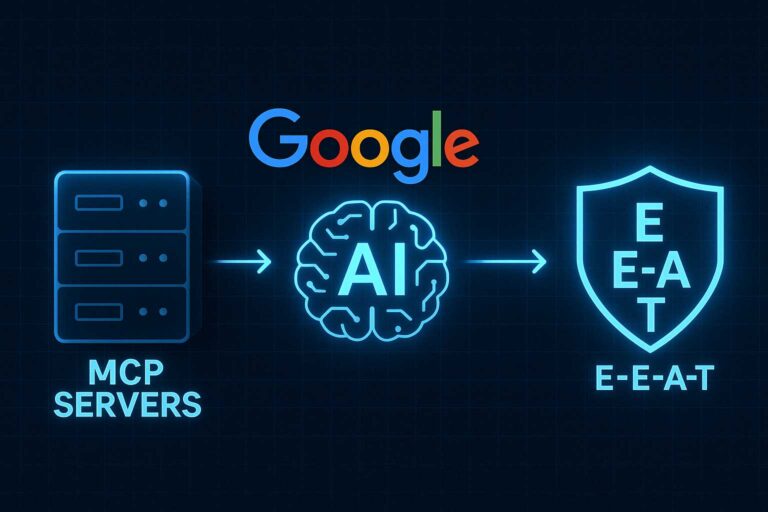The Role of AI in Social Media Marketing: What You Need to Know
Introduction to AI in Social Media Marketing
Artificial intelligence (AI) is no longer just a futuristic concept; it’s a driving force behind some of the most effective social media marketing strategies today. From automating repetitive tasks to delivering personalized customer experiences, AI is transforming how businesses connect with their audiences. Whether you’re a small business or a global brand, understanding AI’s role in social media can help you stay competitive and improve your marketing outcomes.
AI enables marketers to streamline their workflows, save time, and achieve better results by analyzing data and automating processes. It also provides opportunities to create more engaging and relevant content tailored to specific audiences. By leveraging these tools effectively, businesses can maximize the impact of their campaigns while staying ahead of trends. For companies looking to explore AI-driven solutions, integrating social media agency services can provide the expertise needed to implement these technologies efficiently.
Enhancing Content Creation with AI
Creating high-quality, engaging content consistently is one of the biggest challenges in social media marketing. AI has emerged as a game-changer, helping marketers produce content more efficiently and effectively. Tools like ChatGPT, Jasper, and Copy.ai assist with writing captions, blog posts, and social media copy that resonate with audiences. Meanwhile, AI-powered design platforms like Canva and Adobe Express help generate eye-catching visuals in minutes.
AI’s ability to analyze audience behavior and preferences also plays a significant role in shaping content. For instance, it can identify trending topics or keywords that will attract more engagement. By using these insights, marketers can create content that feels relevant and timely. Additionally, AI tools can repurpose existing content into new formats, such as turning a blog post into a video script or summarizing long-form content into bite-sized social media updates.
However, while AI can handle much of the heavy lifting, human creativity remains essential. AI-generated content often lacks the nuance and emotional depth that only humans can bring. To strike the right balance, use AI tools as a starting point, then refine the output to align with your brand’s voice and tone. This collaborative approach ensures your content remains authentic while benefiting from the efficiency AI provides.
Optimizing Ad Campaigns with AI
AI is revolutionizing how businesses run ad campaigns on social media platforms. Traditionally, creating effective ad campaigns required extensive research and manual adjustments. With AI, marketers can now automate and optimize many aspects of the process, from audience targeting to performance analysis.
AI algorithms analyze vast amounts of user data to identify specific audience segments most likely to engage with your ads. This means businesses can deliver highly targeted campaigns that are more likely to convert. For example, platforms like Meta (formerly Facebook) use AI to suggest optimal ad placements and formats based on past performance. This ensures ads reach the right people at the right time, maximizing ROI.
Another major benefit is the ability to run A/B tests efficiently. AI can automatically test multiple versions of an ad—such as variations in headlines, images, or calls-to-action—and determine which performs best. It then allocates the budget to the most effective version, saving marketers time and resources.
In addition to targeting and testing, AI helps with real-time optimization. As campaigns run, AI tools monitor key metrics like click-through rates and conversions, making adjustments to improve performance. This ensures campaigns remain effective throughout their lifecycle, even as audience behaviors shift.
AI’s impact on advertising is clear, but it’s important to remember that successful campaigns still require strategic planning and creativity. While AI can handle the data-heavy aspects, human insight is crucial for crafting messaging that resonates emotionally with the target audience. Together, these elements create campaigns that are both data-driven and compelling.
Personalizing Customer Experiences
One of the most significant advantages of AI in social media marketing is its ability to deliver highly personalized customer experiences. Modern consumers expect tailored interactions, and AI makes it possible to meet these expectations at scale. Whether through chatbots, recommendation engines, or targeted content, AI helps brands create experiences that feel customized and relevant.
Chatbots powered by AI are an excellent example of this personalization. These tools can engage with customers in real-time, answering questions, providing product recommendations, or guiding users through the purchasing process. Unlike traditional customer service, AI chatbots are available 24/7, ensuring no inquiry goes unanswered. Additionally, AI-powered chatbots can learn from interactions, improving over time and delivering more accurate responses as they gather data.
Recommendation engines also play a key role in personalization. Platforms like Instagram and TikTok use AI algorithms to show users content that aligns with their preferences and past behaviors. Brands can harness similar AI tools to recommend products or services to their audience. For instance, an e-commerce store can analyze user behavior to suggest products that align with their browsing history or purchase patterns. This not only enhances the user experience but also increases the likelihood of conversions.
By leveraging AI to personalize interactions, brands can foster stronger connections with their audience. Personalization demonstrates that a brand understands and values its customers, which builds trust and loyalty. However, it’s essential to use personalization thoughtfully and transparently to avoid coming across as intrusive.
Predictive Analytics and Trend Forecasting
AI’s ability to analyze vast amounts of data makes it an invaluable tool for predictive analytics and trend forecasting. In social media marketing, this means identifying emerging trends, audience behaviors, and potential opportunities before they become mainstream. By staying ahead of the curve, brands can position themselves as industry leaders and adapt their strategies proactively.
Predictive analytics uses AI to examine historical data and identify patterns that indicate future behavior. For example, AI can analyze past campaign performance to predict how similar campaigns might perform in the future. This helps marketers make more informed decisions about where to allocate resources and which strategies to prioritize.
In addition to predicting campaign outcomes, AI can help identify trends gaining traction on social media platforms. Tools like Sprout Social and Brandwatch use AI to monitor conversations and hashtags, giving brands insights into what topics are resonating with their audience. For example, if a particular hashtag is trending in your industry, AI can highlight this opportunity, enabling you to join the conversation at the right moment.
AI-driven trend forecasting also extends to content formats and platform features. For instance, as TikTok introduced short-form video shopping tools, AI tools predicted their impact on e-commerce, allowing early adopters to gain a competitive edge. By using AI to forecast trends, brands can remain relevant and innovative in their approach.
Improving Social Listening and Sentiment Analysis
Social listening is a critical aspect of any social media strategy, and AI has elevated it to new levels of effectiveness. Social listening involves monitoring conversations about your brand, competitors, or industry to gain insights into what people are saying and feeling. With AI, this process becomes faster, more accurate, and more actionable.
AI-powered social listening tools analyze massive amounts of data in real-time, scanning social platforms for mentions, hashtags, and keywords relevant to your brand. They don’t just track what’s being said—they also evaluate the sentiment behind it. Sentiment analysis, a subset of AI, assesses whether a comment or post is positive, negative, or neutral, giving brands a clear picture of how their audience feels about their products or services.
For instance, if your brand launches a new campaign and AI detects a surge in negative sentiment, you can quickly address the concerns before they escalate. Conversely, identifying positive feedback allows you to amplify what’s working and strengthen your messaging. This real-time understanding of audience sentiment enables brands to respond more effectively, whether it’s resolving customer complaints or celebrating success stories.
Social listening also helps brands keep tabs on competitors. By monitoring mentions of rival products or services, AI can uncover gaps in the market or areas where your brand has a competitive advantage. This intelligence can inform your content strategy, product development, or customer outreach efforts.
Incorporating AI into social listening and sentiment analysis allows brands to stay connected with their audience and respond in meaningful ways. By understanding the emotions and opinions driving conversations, you can refine your strategy and foster stronger relationships with your customers.
Automating Routine Tasks
Social media marketing involves numerous repetitive tasks, from scheduling posts to managing comments. These tasks, while essential, can be time-consuming and take attention away from more strategic efforts. AI simplifies these processes by automating routine tasks, allowing marketers to focus on creative and high-impact activities.
Scheduling posts is one of the most common uses of AI in social media automation. Tools like Buffer, Hootsuite, and Later analyze engagement patterns to determine the optimal times for posting. Rather than guessing when your audience is most active, AI tools ensure your content reaches users when they’re most likely to engage, maximizing visibility and interaction.
AI can also help manage comments and direct messages. Advanced AI-driven tools monitor conversations and provide auto-responses to frequently asked questions, such as inquiries about store hours or shipping policies. While these tools handle basic interactions, more complex issues can be flagged for human follow-up, ensuring your audience feels supported.
Additionally, AI can assist with hashtag generation, content recommendations, and performance tracking. For example, an AI tool might suggest hashtags tailored to your niche or identify trending topics relevant to your audience. These automated insights make it easier to stay ahead of trends and optimize your social media strategy.
By automating routine tasks, businesses can save time, improve efficiency, and ensure consistency across platforms. This allows teams to focus on strategic planning and engaging more meaningfully with their audience.
Challenges and Ethical Considerations of AI
While AI offers numerous benefits, it’s not without challenges and ethical considerations. One significant concern is the potential loss of authenticity. Overreliance on AI can make content feel impersonal or robotic, which can alienate audiences seeking genuine connections with brands. Striking the right balance between automation and human creativity is essential to maintain authenticity.
Another challenge is AI bias. Since AI tools learn from existing data, they can inadvertently perpetuate biases present in that data. For example, an AI algorithm analyzing user preferences might prioritize certain demographics while neglecting others, leading to unintentional exclusion. Marketers must remain vigilant and review AI-generated outputs to ensure inclusivity and fairness.
Transparency is also critical when using AI in social media marketing. Consumers value honesty, and disguising AI-generated content as human-made can erode trust if discovered. Being upfront about the use of AI tools, such as chatbots, ensures your audience knows what to expect and helps build credibility.
Finally, data privacy is a pressing concern. AI relies on vast amounts of data to function effectively, raising questions about how user information is collected, stored, and used. Brands must adhere to privacy regulations like GDPR and CCPA and prioritize ethical data practices to protect their audience.
Understanding and addressing these challenges ensures that AI is used responsibly and enhances, rather than diminishes, the effectiveness of your social media strategy.
The Future of AI in Social Media Marketing
The role of AI in social media marketing continues to evolve, with new technologies pushing the boundaries of what’s possible. One emerging trend is the use of generative AI, which creates entirely new content based on input data. For example, tools like Runway and DeepArt allow marketers to produce unique images or videos tailored to their brand. This capability opens up endless creative possibilities and helps brands stand out in crowded feeds.
Augmented reality (AR) and virtual reality (VR) are also becoming more integrated with social media, with AI playing a central role. Platforms like Instagram and Snapchat use AI to power AR filters, while brands are experimenting with VR experiences to engage users in immersive ways. These technologies are expected to become even more prevalent, offering innovative ways to connect with audiences.
AI’s predictive capabilities will also continue to grow. Advanced algorithms will enable brands to anticipate audience preferences and behaviors with even greater accuracy, allowing for hyper-personalized campaigns. Similarly, AI-powered voice recognition and conversational AI are expected to shape how users interact with brands on platforms like Facebook Messenger and WhatsApp.
The future of AI in social media marketing is exciting and full of potential, but it also requires marketers to stay adaptable and informed. Embracing these innovations while maintaining a strong foundation of authenticity and ethical practices will be key to success.
How to Start Using AI in Your Social Media Strategy
Integrating AI into your social media strategy may feel daunting, but starting small and scaling gradually can make the process manageable. Begin by identifying areas where AI can provide the most value, such as automating scheduling, generating content, or analyzing performance. Choose tools that align with your specific needs and goals.
For content creation, experiment with tools like Jasper or ChatGPT to assist with brainstorming ideas or drafting posts. If you’re looking to enhance audience targeting, explore AI-powered advertising solutions on platforms like Meta or Google Ads. For analytics, consider tools like Sprout Social or Brandwatch to gain deeper insights into audience behavior and campaign performance.
It’s important to test and refine your approach as you implement AI tools. Start with a pilot project or a single platform to gauge the impact of AI on your results. Gather feedback from your team and audience to ensure the tools are delivering value without compromising your brand’s authenticity.
As you become more comfortable with AI, look for ways to integrate it across your entire social media strategy. The key is to view AI as a complement to human creativity, not a replacement. By combining the efficiency of AI with the insight and emotion of human input, you can create a strategy that drives meaningful engagement and long-term success.

















